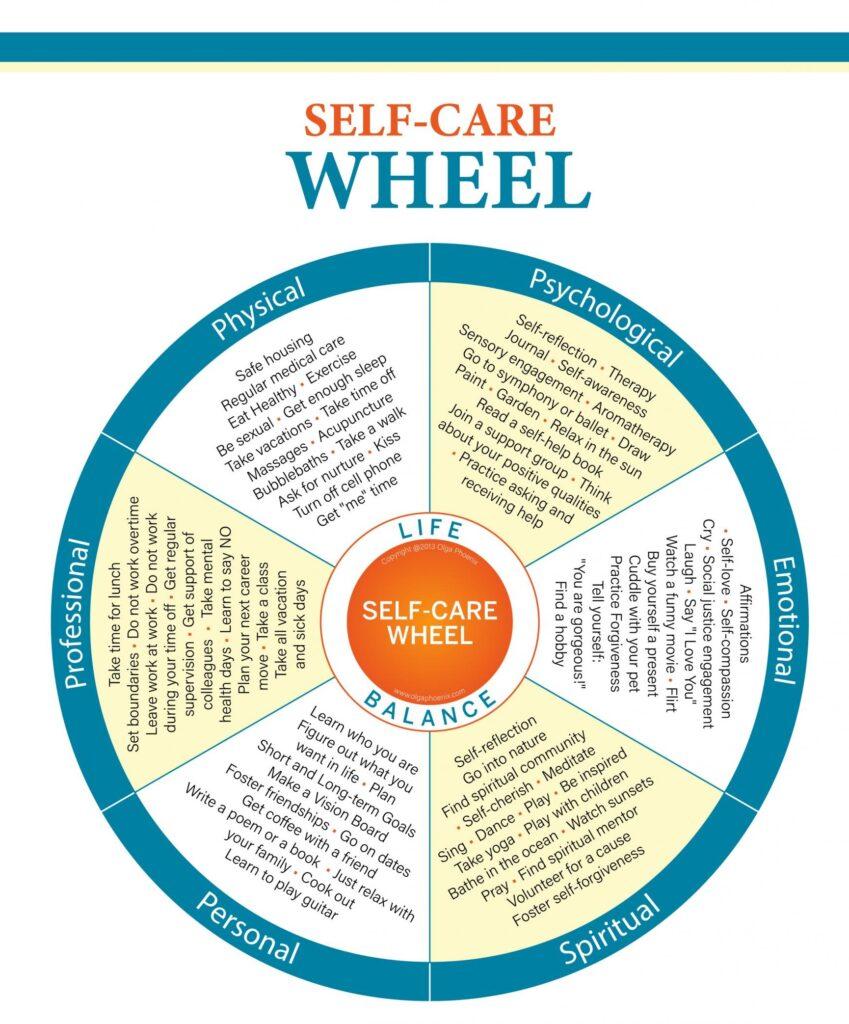
In the dynamic landscape of today’s digital age, the remote work revolution has ushered in a paradigm shift in the way entrepreneurs conduct business. This transformation, while offering unprecedented opportunities for independence and global reach, comes with a profound impact on the mental health and overall well-being of those navigating this entrepreneurial journey.
In this comprehensive blog post, we will embark on a journey of exploration into the profound implications of the remote work revolution on the mental health of entrepreneurs. Focusing on the keywords “remote work,” “mental health,” and “well-being,” we delve into the intricate challenges posed by this new era of work and how it has given rise to isolation, often leading to mental health concerns.
But we don’t merely identify the problems; we are committed to providing practical and well-researched strategies and solutions that entrepreneurs can implement to prioritize their mental health and well-being while creating a supportive, healthy, and productive work environment.
Join us as we navigate the uncharted waters of the remote work era, shedding light on the nuances of entrepreneurship, mental wellness, and the unique challenges and opportunities that the digital age presents.
The Remote Work Revolution: A Paradigm Shift in Entrepreneurship
The Evolution of Remote Work
The remote work revolution is an undeniable force that has reshaped the business world. Technology has made it possible for entrepreneurs to work from anywhere in the world, unburdened by traditional office constraints. This shift has created a thriving ecosystem of entrepreneurs who thrive on flexibility, independence, and global collaboration.
How Entrepreneurs Benefit from Remote Work
Online entrepreneurs are among the primary beneficiaries of the remote work revolution. They can assemble global teams, access diverse talent, and operate their businesses with unprecedented freedom. Remote work provides the opportunity for creative endeavors, efficient operations, and improved work-life balance. Yet, it’s essential to recognize that the seemingly idyllic world of remote work has its unique challenges, particularly when it comes to isolation and its impact on mental health.
The Isolation Challenge: Unveiling the Dark Side of Independence
The Loneliness Epidemic
The remarkable independence of remote work can sometimes breed isolation. Entrepreneurship can be a solitary journey, and for those working remotely, the lack of daily interactions with colleagues can lead to feelings of loneliness and disconnection. Entrepreneurs often grapple with the reality that success comes at the cost of limited face-to-face human interaction.
Isolation’s Impact on Entrepreneurial Mental Health
The isolation challenge is not to be taken lightly. Isolation can have a profound impact on mental health, leading to increased levels of stress, anxiety, and depression. The absence of a support system within the workplace, such as coworkers and supervisors, can exacerbate these feelings. For entrepreneurs who spend extended hours in isolation, this issue can become more pronounced.
Common Mental Health Issues Faced by Remote Entrepreneurs
Online entrepreneurs may experience a range of mental health issues due to isolation, including:
Anxiety: The pressure of running a business combined with isolation can result in anxiety disorders, which may manifest as panic attacks, excessive worry, and restlessness.
Depression: Prolonged isolation can lead to depression, characterized by feelings of hopelessness, loss of interest in activities, and changes in sleep and appetite.
Stress: The stress of entrepreneurship, combined with isolation, can create chronic stress that negatively impacts physical health, work performance, and overall well-being.
Burnout: The lack of work-life boundaries in remote settings can lead to burnout, characterized by emotional exhaustion, cynicism, and reduced effectiveness.
Prioritizing Mental Health: Strategies for a Healthy Entrepreneurial Journey
Staying Connected: The Power of Community
To combat isolation and its impact on mental health, entrepreneurs should prioritize staying connected. Engaging with like-minded peers, whether through virtual communities, mastermind groups, or networking events, can provide a sense of belonging and support. Collaborative ventures and shared experiences can mitigate feelings of isolation and foster a sense of community.
Seeking Professional Help: When to Reach Out
Entrepreneurs should recognize when they need professional help. If feelings of anxiety, depression, or chronic stress persist, it’s crucial to consult with a mental health professional. Seeking therapy or counseling can provide valuable tools for coping with mental health challenges and developing resilience.
Establishing Routines that Foster Mental Well-being
Entrepreneurs should establish routines that prioritize mental well-being. This includes setting boundaries for work hours, allowing time for relaxation, and incorporating regular physical activity. Consistent routines can create a sense of stability and predictability in the entrepreneur’s life.
The Remote Work Revolution: A Paradigm Shift in Entrepreneurship
The Evolution of Remote Work
The remote work revolution is an undeniable force that has reshaped the business world. Technology has made it possible for entrepreneurs to work from anywhere in the world, unburdened by traditional office constraints. This shift has created a thriving ecosystem of entrepreneurs who thrive on flexibility, independence, and global collaboration.
How Entrepreneurs Benefit from Remote Work
Online entrepreneurs are among the primary beneficiaries of the remote work revolution. They can assemble global teams, access diverse talent, and operate their businesses with unprecedented freedom. Remote work provides the opportunity for creative endeavors, efficient operations, and improved work-life balance. Yet, it’s essential to recognize that the seemingly idyllic world of remote work has its unique challenges, particularly when it comes to isolation and its impact on mental health.
Balancing the Scales: Independence and Isolation
While independence is a hallmark of remote work, it can sometimes breed isolation. Entrepreneurship can be a solitary journey, and for those working remotely, the lack of daily interactions with colleagues can lead to feelings of loneliness and disconnection. Entrepreneurs often grapple with the reality that success comes at the cost of limited face-to-face human interaction.
The Isolation Challenge: Unveiling the Dark Side of Independence
The Loneliness Epidemic
The remarkable independence of remote work can sometimes breed isolation. Entrepreneurship can be a solitary journey, and for those working remotely, the lack of daily interactions with colleagues can lead to feelings of loneliness and disconnection. Entrepreneurs often grapple with the reality that success comes at the cost of limited face-to-face human interaction.
Isolation’s Impact on Entrepreneurial Mental Health
The isolation challenge is not to be taken lightly. Isolation can have a profound impact on mental health, leading to increased levels of stress, anxiety, and depression. The absence of a support system within the workplace, such as coworkers and supervisors, can exacerbate these feelings. For entrepreneurs who spend extended hours in isolation, this issue can become more pronounced.
The Scourge of Loneliness: Mental Health Struggles
Isolation can lead to a range of mental health struggles for entrepreneurs:
Anxiety: The pressure of running a business combined with isolation can result in anxiety disorders, which may manifest as panic attacks, excessive worry, and restlessness.
Depression: Prolonged isolation can lead to depression, characterized by feelings of hopelessness, loss of interest in activities, and changes in sleep and appetite.
Stress: The stress of entrepreneurship, combined with isolation, can create chronic stress that negatively impacts physical health, work performance, and overall well-being.
Burnout: The lack of work-life boundaries in remote settings can lead to burnout, characterized by emotional exhaustion, cynicism, and reduced effectiveness.
Prioritizing Mental Health: Strategies for a Healthy Entrepreneurial Journey
Staying Connected: Building a Supportive Community
To combat isolation and its impact on mental health, entrepreneurs should prioritize staying connected. Engaging with like-minded peers, whether through virtual communities, mastermind groups, or networking events, can provide a sense of belonging and support. Collaborative ventures and shared experiences can mitigate feelings of isolation and foster a sense of community.
Seeking Professional Help: Recognizing When to Reach Out
Entrepreneurs should recognize when they need professional help. If feelings of anxiety, depression, or chronic stress persist, it’s crucial to consult with a mental health professional. Seeking therapy or counseling can provide valuable tools for coping with mental health challenges and developing resilience.
Crafting Routines for Mental Well-being
Entrepreneurs should establish routines that prioritize mental well-being. This includes setting boundaries for work hours, allowing time for relaxation, and incorporating regular physical activity. Consistent routines can create a sense of stability and predictability in the entrepreneur’s life.
Mindfulness, Self-Care, and Striking the Work-Life Balance
Practices like mindfulness meditation and self-care rituals can significantly impact mental health. Entrepreneurs should integrate these practices into their daily lives to reduce stress and promote emotional well-being. Achieving a work-life balance, where leisure time is just as valued as productivity, is crucial for mental health.
The Power of Digital Tools in Combating Isolation
Leveraging Technology to Foster Connection
Technology offers a range of tools that can help entrepreneurs combat isolation. Video conferencing, social media, and messaging apps enable entrepreneurs to stay connected with peers and clients, bridging the physical distance.
Virtual Co-working Spaces: The Future of Collaboration
Virtual co-working spaces are emerging as a solution to the isolation challenge. Entrepreneurs can work alongside their peers virtually, providing a sense of community and shared workspaces.
Online Mastermind Groups and Support Communities
Entrepreneurs should explore online mastermind groups and support communities. These groups offer a platform for collaboration, mentorship, and shared experiences, reducing feelings of isolation and fostering a sense of belonging.
Designing the Ideal Remote Workspace for Mental Well-being
The Ergonomics of Productivity and Wellness
Creating an ergonomic workspace is crucial for both productivity and wellness. Entrepreneurs should invest in comfortable chairs, ergonomic desks, and appropriate lighting to reduce physical strain and promote well-being.
Natural Light, Plants, and Decor: Creating a Positive Environment
Natural light, indoor plants, and tasteful decor can transform a remote workspace. These elements not only boost mood but also contribute to a positive and inspiring work environment.
The Role of Office Organization in Mental Clarity
A well-organized workspace reduces clutter and enhances mental clarity. Entrepreneurs should establish efficient filing systems, declutter regularly, and create a space that promotes focus and productivity.
Physical Health and Mental Resilience
The Mind-Body Connection: Nutrition and Exercise
Entrepreneurs should recognize the mind-body connection and prioritize nutrition and exercise. A well-balanced diet and regular physical activity support mental resilience and overall well-being.
The Benefits of Regular Physical Activity
Regular exercise is a potent stress reliever and mood enhancer. Entrepreneurs can incorporate physical activity into their daily routines, whether through home workouts, outdoor activities, or fitness apps.
Mindful Eating: Fueling the Entrepreneurial Mind
Mindful eating practices encourage a deeper connection with food. Entrepreneurs can practice mindful eating by savoring their meals, eating with intention, and avoiding mindless snacking while working.
Strategies for Balancing Business and Personal Life
Time Management Techniques for Entrepreneurs
Entrepreneurs must adopt effective time management techniques to balance business and personal life. Time-blocking, the Pomodoro technique, and task prioritization can help maximize productivity.
Setting Clear Work-Life Boundaries
Establishing clear work-life boundaries is essential for remote entrepreneurs. Entrepreneurs should define their work hours, create a designated workspace, and communicate these boundaries to family and friends.
Prioritizing Family and Personal Time
Family and personal time should be prioritized. Entrepreneurs should allocate time for leisure, hobbies, and quality time with loved ones. Balancing business and personal life fosters well-being and emotional resilience.
Conclusion: A Healthy and Fulfilling Entrepreneurial Journey in the Remote Work Era
The remote work revolution has opened the doors to a new era of entrepreneurial possibilities. However, it has also brought to the forefront the challenges of isolation and its impact on mental health. Online entrepreneurs must be proactive in prioritizing their well-being by staying connected, seeking professional help when needed, establishing routines that foster mental health, incorporating mindfulness and self-care into their daily lives, and designing an ideal remote workspace. By addressing the isolation challenge head-on and recognizing the importance of a balanced work-life relationship, entrepreneurs can create a supportive and healthy work environment that enables them to thrive both personally and professionally in the remote work era. The future of entrepreneurship lies in a holistic approach that values the well-being of the entrepreneur in the remote work era.




